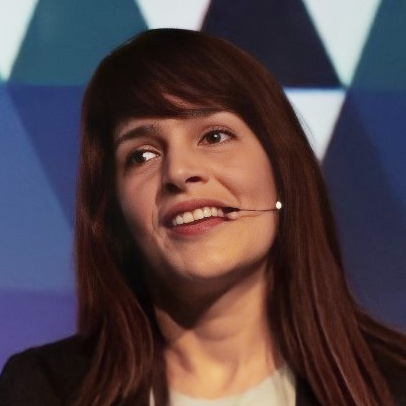Before breaking into the tech industry, Sofia worked in other fields such as management consulting and digital advertising.
“I have jumped from different industries and different jobs, but then I settled in the SaaS world. I love the idea of building products. Things that are useful for other people, that you can scale, and that you can learn from across multiple areas of the business at the same time.”
And for Sofia, having a SaaS business is similar to playing a video game:
“I think SaaS works like a video game. You just go into all these different worlds and all these different levels until you finally get all the business right and you make it work.”
In 2015, Sofia and her team created EnjoyHQ, a data product that helps businesses centralize customer feedback and user research data. And after working on it for seven years, they sold it to UserZoom in 2022.
Sofia is now working on a new product called Collie which aims to help managers or lead engineers to run their team based on trust:
“It’s all about asynchronous communication and connecting the dots across the typical things that you do to keep the team happy. It’s a communication tool to help engineering teams become more productive or happier by essentially establishing a culture of trust.”
Building Collie using lessons from EnjoyHQ
Find a problem you’re passionate about
SaaS products take a long time to build. So this time around, Sofia knew she had to choose an idea that she could stick with for many years:
“If I wanted to build another company, I needed to pick something that I was going to be happy to work on for many years. I wanted to find something I would be curious enough to develop a deep passion for it just because I want to solve it.”
People are everything
A life-changing lesson that Sofia learned with EnjoyHQ is the importance of a good team:
“Having a team that is fully committed, talented, and that wants to see the company succeed means everything.”
And after selling EnjoyHQ, Sofia realized that they were able to build a great engineering culture:
“All our engineers had this amazing thing in common. They were super customer-focused. They wanted to do customer support. They were working and researching and improving themselves constantly. They were great at communication.
One part was luck because we were lucky to find them. But then another part was all the different rituals, structure, and communication processes that we put around them that really helped us leverage that talent. At the same time, it made them really happy.”
The motivation behind building Collie
Sofia shares that during her time at EnjoyHQ, she felt the pain that most first time founders feel when it comes to engineering. She noticed that unless you’re a technical founder or have a CTO, you often find yourself asking:
- Why is it taking so long?
- Why can’t they build the thing that I want?
- Why’s it so difficult to communicate?
- Why did they tell me this was going to be ready two weeks ago and it’s not?
And because of this emotional drain, Sofia started thinking about how to help engineers succeed, but also guide, and manage them in a way that they can really flourish. They also wanted to remove the unnecessary things around management that do not help the engineers thrive in their work.
Uncovering personal motivation using JTBD
While Sofia uses Jobs to Be Done and other frameworks for her research process, she believes that we should be going past that to unlock more valuable insights:
“Really see through the eyes of your customers and understand what they are actually looking for. What do you actually represent to them beyond the problem that they’re trying to solve? Beyond the perception that they might have of the problem, how will it make them look cool or not? What are they fighting for? What is their internal mission and how are you part of that?”
And during her time at EnjoyHQ, they were able to uncover the personal motivations of researchers by digging deeper:
“Beyond the things that the product does, they are doing it because it is an opportunity for them to build a legacy. To work on a project and build something together with their teams so that they might transform the company.
They see EnjoyHQ as an opportunity for them to become leaders in the organization, to finally have cross-functional collaboration, and get to meet other colleagues. This helps them build a reputation, be credible, and learn about something that they normally wouldn’t learn in their jobs because those opportunities are not there waiting for them.”
And while the reasons are selfish, looking at your product that way will help you think about your product in a more flexible way:
“In that emotional-psychological space, that’s where you find the coolest ideas for marketing. The coolest way to position your company and messaging. You can also find the coolest way to build features that maybe are not super useful from a problem-solving perspective, but they’re delightful to people.
Creativity happens when you can really understand what is moving people and what is their psychological motivation. When you get to tap into that, that’s where magic happens.”
But how exactly do you start? Sofia did this by studying a lot of psychology, neuroscience, and talking to customers.
How to help customers open up
But how do you get customers to tell you the deeper and more personal things they think about?
Sofia says that while using frameworks definitely helps structure your conversations, asking direct and personal questions also allows you to help them open up to you:
“It’s just about practicing during that first conversation and just trying to be more open. People aren’t going to open up right away.”
And because you won’t get that in one interview, Sofia believes that you should actually be talking to a bunch of people many times:
“You must also have a group of people or multiple cohorts of people that you talk to often, and over time, so you can have a seventh, eighth, ninth conversation with somebody. At some point after several conversations, they will start telling you stuff that they didn’t tell you the first time. Because now there is some context between each other. Now you have some trust and so it’s easier for them to open up.”
Doing a one-off interview is okay when you’re talking about a feature. But for conversations around strategy, marketing, positioning, the problem space, and other big problems, you have to talk to people several times:
“You can not go there with this super narrow-minded approach. You have to do this big exploration. And to do that exploration, you have to go a bit deeper and personal. So it takes many iterations, it takes many conversations with the same people.”
Since Sofia is now starting from scratch with her second product, she’s talking to people that she believes are her target market:
“What I’m doing is getting in touch with what I think is my target market and having conversations, but establishing friendships. I want to talk to them when I have the beta open, six months later, and a year later. I want to know why they didn’t buy or, if they bought, why they bought. I want to continue that conversation as long as I can because at some point, they will tell me something that they didn’t tell me before.”
Cadence of doing customer interviews
Instead of thinking about doing interviews in batches, Sofia thinks it’s better to see it as an ongoing activity:
“The opportunities are everywhere. For instance, customer support is the best. So the moment that you open your doors and people start using your product, whether they’re paying or not, every time that they come to you and they complain about something or they ask a question, it’s an opportunity to have a conversation.
Sometimes it’s very transactional and very concrete, but whenever possible I ask just a question and I start the conversation. It could be within the live chat and that conversation might translate into a call.”
Sofia advises to do a minimum of one customer interview a week:
“Just have at least one conversation per week. Some will say it’s probably too little and some people will get mad at this because you should do a lot of interviews daily. But the reality is that when you are starting a business or are a very small team, you have to do so many things to get it off the ground.
Just the thought of talking to customers for five hours a day is:
1. Physically impossible because it’s exhausting so your conversations are going to be low quality anyway.
2. It’s hard to get people’s time and just book them.
So generally speaking, you just want to be connected to them in one way or another throughout the week.”
Your weekly conversations don’t need to be in the form of calls. You can do it through email, live chat, or any other form of interaction. And when you can, you can do one-on-one interviews in batches. The important thing is to make it a habit:
“People think about research as these little discreet sessions that they have and then wait to weigh another three months after they finish. Life and everything changes so fast that you don’t have that luxury to wait another three months to see what changes.”
Asking “Why would this thing fail?”
While it sounds counterintuitive, asking about why a project or a purchasing decision will fail actually helps you prepare for these things:
“If you go the other way around and you just spend five minutes talking to that person, it will help them a ton because you want to protect them, right? You want to help them to succeed. And the only way to succeed is actually be aware of the pitfalls and the things that might damage the project.
And if you prepare your customer to understand that and, and do something about it, you have better chances of succeeding. But in that conversation, you also have better chances to succeed yourself because now you know all these things that you weren’t aware of that will affect the purchase decision.”
While this may seem scary to do, it will actually help you find your ideal customers:
“It’s super scary to be evangelizing for a product for so long and then just sit down and say, ‘You know what? What we need to do is talk about why these things fail, and let’s write about it, and let’s almost convince people not to do it.’ Because those that will do it are the ones that have the motivation, the conviction, and the problem, and those are the customers that we want.”
And if you’re having challenges selling, this approach will still give you valuable insights about why it’s not working.
Final advice
Do spend some time learning about psychology and neuroscience.
“Learn to read published papers. Learn a bit about the latest research on the understanding of the human mind and the brain. If you don’t understand that, you’re just seeing just half of the picture.”
Don’t spend time trying to follow every single framework.
“There are a lot of blog posts, a lot of people with experience talking like we are having this conversation and so on. Your company’s going to be so unique and so do not spend time trying to implement all of the stuff that you see out there. Just believe that you can find your unique recipe for success.”
Thanks for listening! If you found the episode useful, please spread the word on Twitter mentioning @userlist, or leave us a review on iTunes.

